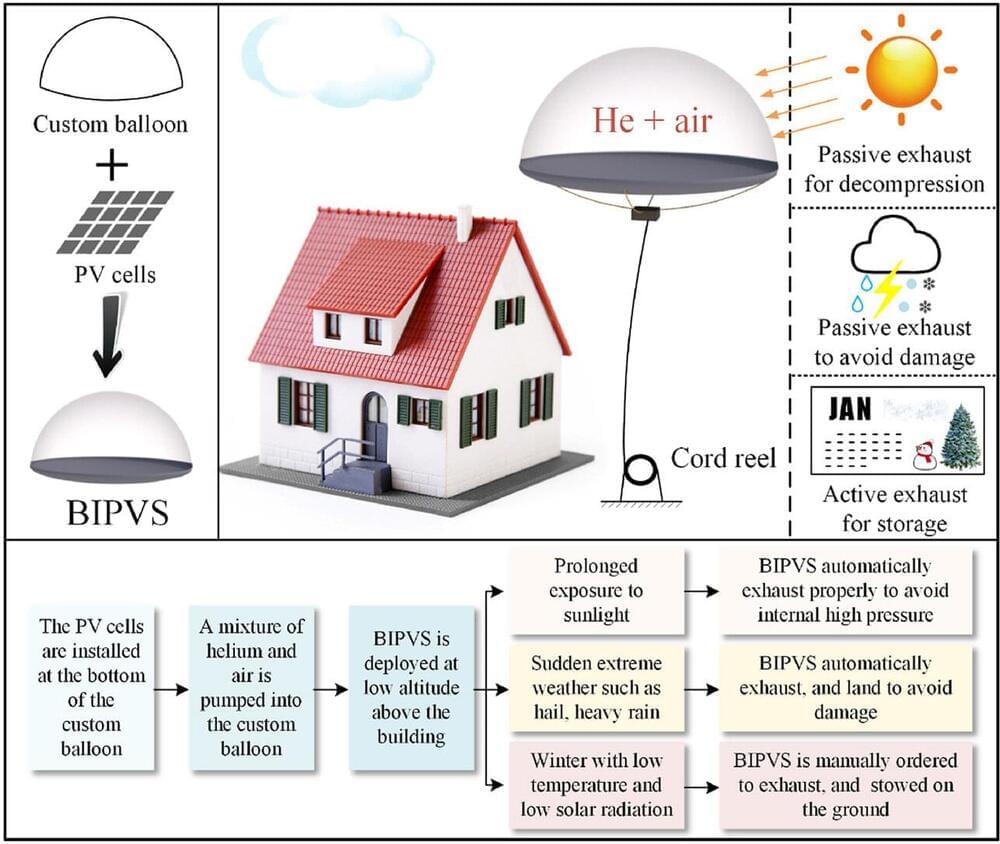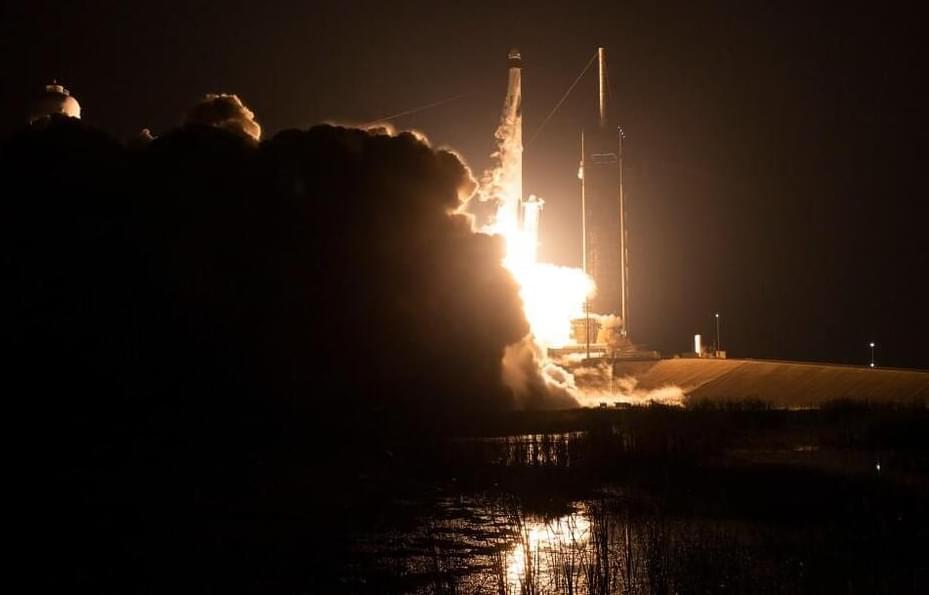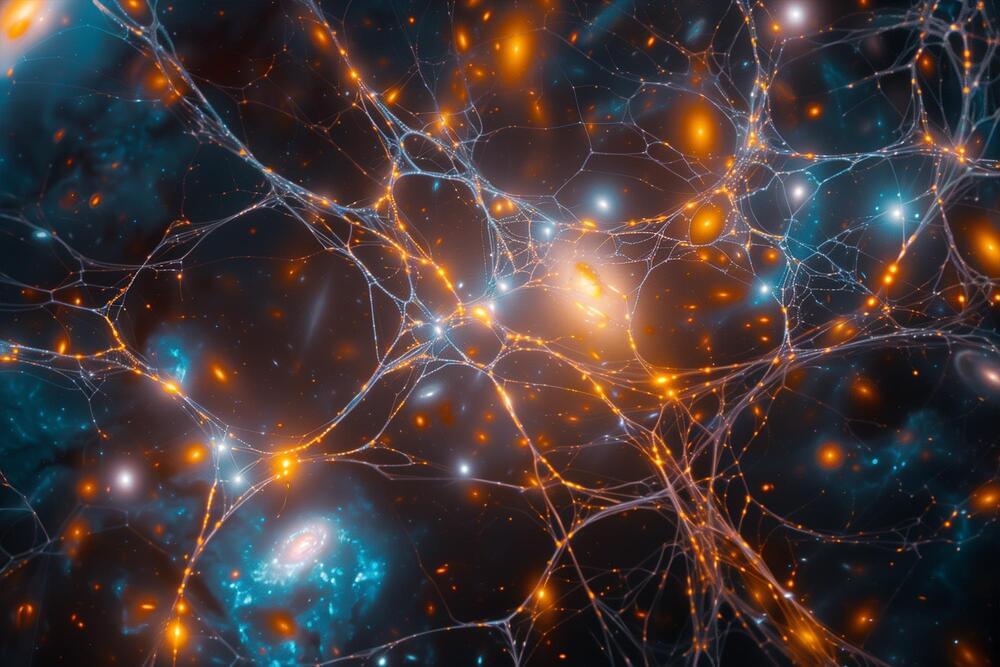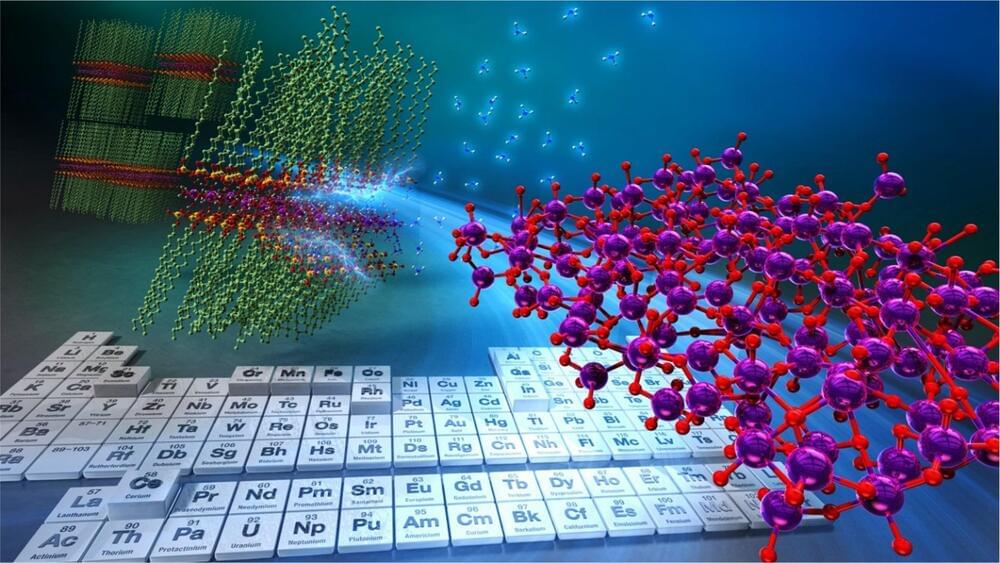Kai-Fu Lee says that his startup 01.AI’s new model, Yi-Lighting is better than GPT-4 and 500x cheaper, and that we will see phenomenal change where AI will reach PhD level intelligence in the next couple of years. — - — #kaifulee #01 #intelligence #largelanguagemodels #aimodel #aimodels #aichina #aitakeover #todayinai
Page 270
Dec 1, 2024
Balloon system can produce localized solar electricity for the ground below
Posted by Shailesh Prasad in category: futurism
A team of engineers and environmental scientists from Mälardalen University, in Sweden, Southwest Jiaotong University, in China and Guizhou University, also in China, has developed a balloon system for producing and delivering electricity to the ground below. Their work is published in the journal Energy.
Dec 1, 2024
Groundbreaking Method Maps Gene Activity in Living Human Brains
Posted by Genevieve Klien in categories: biotech/medical, health, neuroscience
Researchers at FutureNeuro, the SFI Research Centre for Translational Brain Science, and RCSI University of Medicine and Health Sciences, in collaboration with international partners, have developed a revolutionary technique to profile gene activity in the living human brain.
This innovative approach, published in JCI Insight, opens new avenues for understanding and treating neurological conditions like epilepsy.
Studying gene activity in the brain without requiring invasive tissue samples from surgery or post-mortem donation has been a long-standing challenge in neuroscience. By analyzing molecular traces – specifically RNA and DNA – collected from electrodes implanted in the brains of patients with epilepsy and linking these with electrical recordings from the brain, the researchers were able to take a ‘snapshot’ of gene activity in the living brain.
The Space Coast set a new launch record in 2023 with 72 orbital missions from either Kennedy Space Center and Cape Canaveral Space Force Station. The pace of launches could ramp up by the end of 2024 to a near twice-weekly rate with as many as 111 missions possible.
Check back for the latest information on upcoming launches.
Dec 1, 2024
Global dengue outbreak reaches Texas with locally born case
Posted by Genevieve Klien in category: biotech/medical
More than 100 Texans have been infected with the common mosquito-spread virus dengue. Recently, the state reported a case acquired in the Lone Star State.
Dec 1, 2024
New Material to make Next Generation of Electronics Faster and More Efficient
Posted by Natalie Chan in categories: biotech/medical, mobile phones, robotics/AI
With the increase of new technology and artificial intelligence, the demand for efficient and powerful semiconductors continues to grow. Researchers at the University of Minnesota have achieved a new material that will be pivotal in making the next generation of high-power electronics faster, transparent and more efficient. This artificially designed material allows electrons to move faster while remaining transparent to both visible and ultraviolet light, breaking the previous record.
The research, published in Science Advances, a peer-reviewed scientific journal, marks a significant leap forward in semiconductor design, which is crucial to a trillion-dollar global industry expected to continue growing as digital technologies expand.
Semiconductors power nearly all electronics, from smartphones to medical devices. A key to advancing these technologies lies in improving what scientists refer to as “ultra-wide band gap” materials. These materials can conduct electricity efficiently even under extreme conditions. Ultra-wide band gap semiconductors enable high-performance at elevated temperatures, making them essential for more durable and robust electronics.
Dec 1, 2024
Dark Energy May Be Evolving, Transforming Our View of the Universe
Posted by Paul Battista in categories: cosmology, physics
The DESI collaboration’s latest research supports the standard model of gravity and hints at evolving dark energy, based on a detailed analysis of data from millions of galaxies and quasars. These results contribute significantly to understanding the accelerated expansion of the universe.
A physicist from the University of Texas at Dallas, alongside an international team of researchers in the Dark Energy Spectroscopic Instrument (DESI) collaboration, is conducting a multiyear mission to tackle one of astrophysics’ biggest mysteries: Why is the universe’s expansion accelerating?
Scientists have proposed competing theories to explain this phenomenon. One theory suggests that dark energy, an unknown force, is driving galaxies apart. Another theory posits that gravity—the force that binds objects together in local systems like our solar system—behaves differently on vast cosmic scales and may need to be revised to account for the accelerating expansion.
Dec 1, 2024
Catalysis Reinvented: New Ultra-Thin Nanosheets To Drive Green Energy
Posted by Paul Battista in categories: energy, nanotechnology
Nagoya University researchers have pioneered a surfactant-based method to create amorphous nanosheets, enabling production from previously inaccessible materials like aluminum and rhodium oxides.
Researchers at Nagoya University in Japan have addressed a significant challenge in nanosheet technology. Their innovative approach employs surfactants to produce amorphous nanosheets from various materials, including difficult-to-synthesize ultra-thin amorphous metal oxides such as aluminum and rhodium. This breakthrough, published in Nature Communications, sets the stage for future advances in the application of these nanosheets such as those used within fuel cells.
The upcoming generation of nanotechnology requires components that are just a few nanometers thick (one billionth of a meter). These ultrathin layers, which are essential for improving functionality, are known as nanosheets.
Dec 1, 2024
Canada firm compresses spherical tokamak plasma in a world-first
Posted by Genevieve Klien in category: futurism
General Fusion attained world-first achievements using its uniquely practical Magnetized Target Fusion (MTF) technology.
Dec 1, 2024
Powerful New US-Indian Satellite will Track Earth’s Changing Surface
Posted by Natalie Chan in category: satellites
Data from NISAR will improve our understanding of such phenomena as earthquakes, volcanoes, and landslides, as well as damage to infrastructure.
We don’t always notice it, but much of Earth’s surface is in constant motion. Scientists have used satellites and ground-based instruments to track land movement associated with volcanoes, earthquakes, landslides, and other phenomena. But a new satellite from NASA and the Indian Space Research Organization (ISRO) aims to improve what we know and, potentially, help us prepare for and recover from natural and human-caused disasters.
The NISAR (NASA-ISRO Synthetic Aperture Radar) mission will measure the motion of nearly all of the planet’s land and ice-covered surfaces twice every 12 days. The pace of NISAR’s data collection will give researchers a fuller picture of how Earth’s surface changes over time. “This kind of regular observation allows us to look at how Earth’s surface moves across nearly the entire planet,” said Cathleen Jones, NISAR applications lead at NASA’s Jet Propulsion Laboratory in Southern California.

















